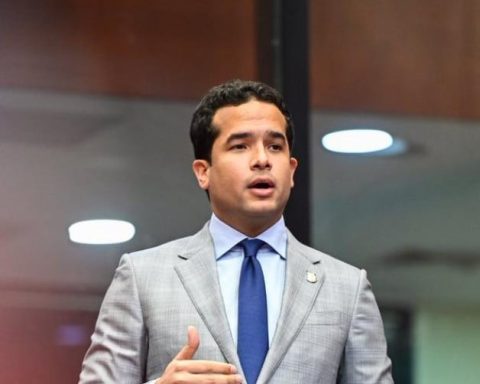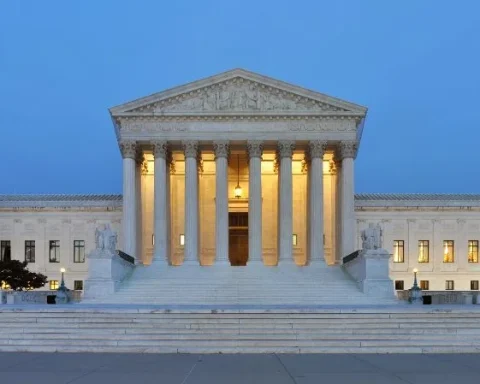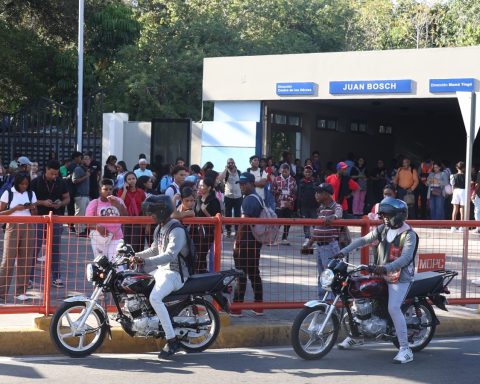
The image of last Friday in the Plenary of the Constitutional Convention (CC) is still in the retina, after the rejection of 97% of the report of the Political System Commission, one of the most anticipated. The proposal of norms seemed complex to approve, since it contained contradictory articles and little systematized among themselves, due to the fact that an agreement was not achieved that would ensure 2/3, for example, in the attributions of the Territorial Council or Chamber, nor in Executive design.
But that result was not the first, because other reports had already given light on what could become a trend: rejecting to give air to the agreements. It happened with the report of the Environment Commission, also with Fundamental Rights, which opened the debate on the work of the commissions and what is behind this fact.
In this context, the constitutional lawyer and coordinator of the Nueva Constitución Observatory, Thomas Jordanconsidered that “there is a serious problem” regarding the formation and work of the commissions, where the integration of these “had more to do with individual interests than with a political design. Therefore, the people who have integrated the commissions have their particular themes, their constitutional and non-constitutional ideas to these commissions and try to ensure that these ideas are included in the reports”.
“The critical knot of the work towards the plenary is, on the one hand, how the commissions are integrated and this willingness to bring particular ideas to the report so that they can be discussed in plenary, and this has collided with the political and social configuration of the plenary. As the members of the commissions are not a reflection of the majorities of the plenary, they collide and many of the articles in the report have been rejected,” he explained.
Jordán also stated that it is a weakness that sometimes it is a strategy or agreement –as happened with the Political System, in which groups agreed to reject in order to look for new coincidences–, since, “having a lack of capacity to agree on the commission, a force outside the commission would be required to order the internal debate. It is not a strategy, it is rather the consequence of the lack of will and capacity to articulate agreements”.
“If after 6 months there are commissions that would expect -such as the Political System- that the plenary would reject them for them to feel forced to negotiate, it is because the capacity for articulation did not exist,” he stressed.
For his part, the doctor in Political Science and director of the School of Government and Communications of the Central University, Marco Morenostated that this “leads us to think that the fact that the conventional draft and approve articles in the commissions and later, when they go to the plenary session, reject them is quite inexplicable.”
In their view, when an explanation is sought for this conduct, it seems that “they realize that they do not have a sufficient quorum and what they are looking for is to gain time to negotiate, because they are aware that as the articles have been proposed in the commission, they will not have the support of the 2/3”.
Along these lines, he warned that “the extension strategy is dangerous, because the problem is that it begins to generate a over-stock of unresolved issues, against a short time, which makes it not so clear that they can reach agreements, given the pressure of time”.
The third option or third way
The report issued by the Venice Commission, as a result of a consultation carried out by the same senators who convened it, did not close the door to a third option, however, it emphasized that the rules of the game of the exit plebiscite were known. already by the citizens, regarding the options “Approve” and “Reject”, so it did not seem advisable to include a third alternative. The Commission did open the door to having an alternative path after the plebiscite.
“The opinion of the Venice Commission is that if the possibility of a third option is offered, it should be through political commitments of the relevant political actors to carry out a genuine reform after the plebiscite, rather than changing the terms of the formal review process at this stage,” the document says.
On this issue, Moreno agreed on the difficulty of incorporating an option 3 in the same plebiscite and said he saw it as “unfeasible but not impossible.” “If there were to be some consensus, it would give rise to progress in that direction and, also, that would operate to lengthen the working time of the Convention. I see it as not very viable because normally the plebiscites are two options, they are not between three or four. The agreement of November 15 and the adjustment that was made in the Style Commission agreed on the options that this exit plebiscite would have: Approval and Rejection.
In any case, he stated that after the exit consultation, Congress will have an important role in lowering what is established in the Constitution. “Everything that has to do with lowering the level of laws and regulations, Congress will see, whichever exists, will have an important part of participation in the constituent process, because everything will not be in the Constitution. detailed, and that will be a space for agreements”.
For Jordán, meanwhile, “the role of the CC is to propose the best possible text to be approved in the exit plebiscite and, therefore, that plebiscite is marked by the Approval or Rejection of the proposed new Constitution. That has been prepared by the report of the Venice Commission, but also by a situation in which the possibility of its rejection exists”.
In the event that the Rejection option wins –which, he clarified, seems distant for now in the polls–, “the powers that are outside the CC, in this case the Congress, also have to visualize ways out, of resolve possible future problems, such as that, if the Rejection occurs, the Constitution of 1980 would remain in force, which is not a possible way out today”.
“The Venice Commission should be understood as a wake-up call, where public powers, especially Congress and the Executive, have to eventually agree on a different way out,” he concluded.

















